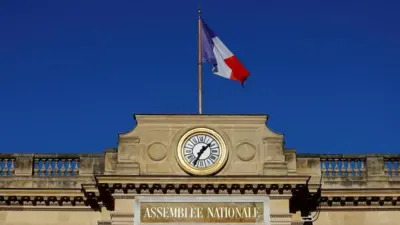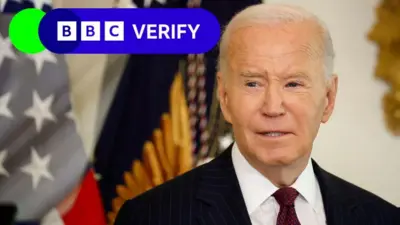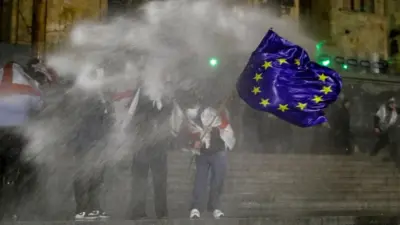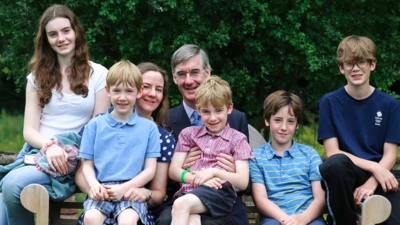We've updated our Privacy and Cookies Policy
We've made some important changes to our Privacy and Cookies Policy and we want you to know what this means for you and your data.
Leveson Inquiry hears about portrayal of women in press
Top Stories
Papers should not be allowed to print pictures of women that would not be shown on pre-watershed television, an inquiry into press standards was told.
Anna Van Heeswijk, from Object, said Page Three tabloids portrayed women as the "sum of sexualised body parts".
There was no marked difference between pornography and these pictures, yet mainstream newspapers were much more accessible, she added.
Other women's groups spoke about how sexual crimes were reported.
Object, an organisation set up to challenge the sexual objectification of women, had submitted various examples of how women were portrayed in the media.
Top Stories
"You will find there is a gradient of extremity running from the Sun to the Daily Star. The common theme throughout this is the Page Three feature which is of a topless or sometimes fully nude young woman who is objectified," Ms Heeswijk told the Leveson Inquiry.
One of her examples was a Daily Star story about the singer Charlotte Church as a 15-year-old girl, which featured the commentary: "She's a big girl now... looking chest swell".
"Harmful"
Top Stories
She also highlighted a more recent front page story in the Sun about an attack on two of the female stars of reality TV show The Only Way Is Essex. She said one of the victims was pictured in her underwear, which trivialised the act of violence.
Many of the images would be banned from the workplace under current equality legislation, and would not be shown on television before the watershed, she said.
"It's more harmful to have these images in mainstream newspapers because of the normalising effect it has," she added.
"We are not proposing any radical overhaul of media regulation. We are just calling for consistency."
The inquiry also heard from three other representatives of women's and equality groups - Jacqui Hunt from Equality Now, Marai Larasi from End Violence against Women, and Heather Harvey from Eaves Housing for Women.
Ms Larasi spoke about the coverage of rape and violence against women, and cited the example of a newspaper story which had the headline: "Man murdered wife after she changes Facebook status to single".
She said the focus on Facebook and the relationship between the couple trivialised the murder and took responsibility away from the husband.
Later, three prominent tabloid journalists gave evidence to the inquiry.
Ryan Parry, a reporter with the Daily Mirror, defended using a false reference to pose undercover as a footman at Buckingham Palace for a story.
He said a resultant security review had found that the Queen was at risk from terrorism.
Mr Parry and two Sun journalists, reporter Gary O'Shea and publishing director Stephen Waring, were also questioned about articles written about Christopher Jeffries - the retired teacher wrongly accused of killing Jo Yeates in Bristol.
The Sun and the Daily Mirror were fined for contempt over coverage of his arrest and eight newspapers were forced to apologise and pay substantial libel damages.
Mistakes
Mr Parry described the story as a "watershed" moment for the industry and said everyone at the Daily Mirror was regretful for "vilifying" Mr Jefferies.
Mr O'Shea said: "We didn't adhere perhaps to our obligations to report on this case in a dispassionate and neutral manner."
But he said the Sun did not often make mistakes: "And I think when we do make mistakes they are honest mistakes".
Mr Waring, who had written the headlines on the articles in question, said the culture of the paper had been changed following Mr Jefferies' case.
He apologised both personally and on behalf of the Sun for what had happened: "I would like to express my sincere personal regrets that my actions contributed to and exacerbated the acute personal distress felt by Mr Jefferies, his friends and his family."
The inquiry also heard from two freedom of expression exponents - Jonathan Heawood, director of English Pen, a charity which promotes literature and human rights, and John Kampfner, chief executive of Index on Censorship.
Mr Kampfner, former editor of the New Statesman, described how the lobby system was a weakness in UK journalism.
"My experience of the Westminster lobby from the mid 1990s to the mid 2000s was a media that was extraordinarily pliant. There was a culture of feeding the beast."
He said he was told by one spin doctor, who was "dictating" a story to him about a new business initiative, to "shut up, take it down, if you want more from where this comes from in the future".
The Leveson Inquiry was set up by Prime Minister David Cameron in July 2011 amid new revelations of phone hacking at the now-defunct News of the World.
The first phase is examining the practices and ethics of the press. A second phase of the inquiry, after a police investigation into phone hacking at the News of the World is complete, will focus on unlawful conduct by the press and the police's initial hacking investigation.
Top Stories
More to explore
Most read
Content is not available








